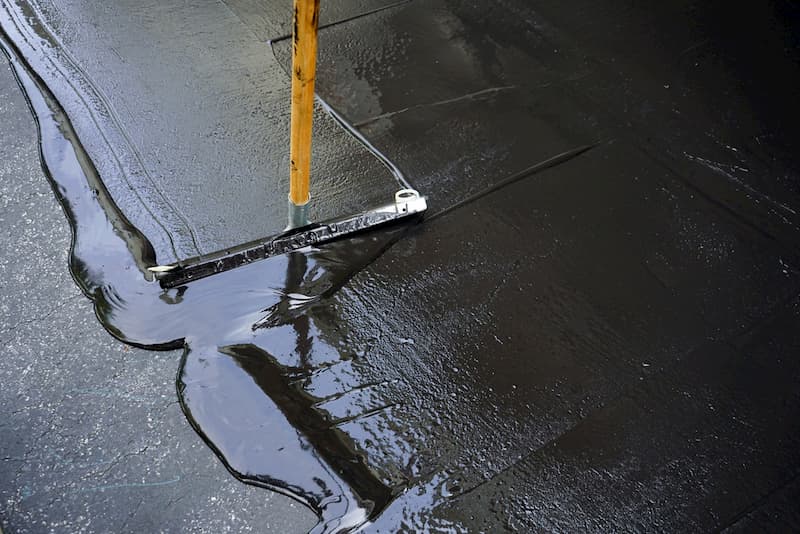Efficient Asphalt Repair: Cold Mix Sealing Techniques Unveiled
Efficient Asphalt Repair: Cold Mix Sealing Techniques Unveiled
Blog Article
Cold Mix Asphalt Vs. Hot Mix Asphalt: Which Is Right for You?

Make-up Differences
Cold mix and warm mix asphalts differ considerably in their make-up, with distinctive qualities that affect their performance and applications. Cold mix asphalt is created by emulsifying the asphalt binder with water and an emulsifying representative prior to mixing it with accumulation. This technique permits the asphalt to be convenient at reduced temperatures, making it perfect for momentary repairs and for use in cooler weather. Hot mix asphalt, on the various other hand, is made at heats, typically in between 300-350 ° F, which helps to achieve much better compaction and a much more durable end product. The hot mix asphalt manufacturing procedure involves heating up the accumulation and asphalt binder individually before incorporating them at the asphalt plant.
Moreover, cold mix asphalt tends to be much less dense and more versatile than warm mix asphalt. This adaptability makes it better suited for locations with greater degrees of motion, such as driveways or roads with rush hour. On the other hand, warm mix asphalt is recognized for its high resilience and resistance to rutting and cracking, making it a recommended choice for freeways and high-traffic roads where durability is critical.
Installation Process Differences
The procedure of mounting cool mix and hot mix asphalt exhibits noteworthy differences in their requirements and procedures. In contrast, hot mix asphalt demands an extra sophisticated setup procedure. Due to the heating demands, warm mix asphalt installations are generally carried out by experts with specialized devices, guaranteeing an extra structurally sound and long-term outcome.
Sturdiness and Durability Variables
When taking into consideration asphalt options, longevity and longevity are essential factors to evaluate for long lasting pavement efficiency. Hot mix asphalt (HMA) is known for its outstanding durability and durability. The heats throughout the laying and blending procedure permit better compaction, resulting in a denser and more powerful pavement structure. This leads to HMA being extra resistant to rush hour tons, extreme weather, and the results of aging compared to cool mix asphalt (CMA)
In regards to long life, HMA usually outperforms CMA as a result of its superior strength and resistance residential properties. HMA sidewalks have a longer solution life, calling for much less constant fixings and maintenance, which can translate to set you back financial savings in the future. Additionally, HMA pavements are more quickly customizable to satisfy certain project demands, even more enhancing their sturdiness.
Price Factors To Consider
Considering the economic implications is a critical aspect when evaluating the option in between warm mix asphalt (HMA) and cold mix asphalt (CMA) for sidewalk jobs. While the initial price of warm mix asphalt is usually greater than that of cold mix asphalt, useful reference HMA often gives a much more cost-efficient solution in the future because of its remarkable durability and durability. HMA is recognized for its capability to hold up against rush hour lots and severe weather, lowering the requirement for regular repairs and maintenance. On the various other hand, cold mix asphalt is more economical in advance however might need even more constant patching and resurfacing, resulting in higher upkeep costs in time.
In enhancement to material costs, it's necessary to take into consideration the expenditures associated with installment and upkeep when comparing HMA and CMA. HMA typically needs specific devices and experienced labor for proper setup, which can influence general task prices. Conversely, CMA is easier to deal with and can usually be applied using easier methods, possibly decreasing setup expenditures. Ultimately, the choice in between HMA and CMA should consider not simply the preliminary cost yet likewise the lasting financial ramifications to determine the most cost-effective alternative for the particular sidewalk task.
Environmental Influence Comparison
Comparison of the environmental impacts between warm mix asphalt (HMA) and cool mix asphalt (CMA) discloses distinctive differences in sustainability practices. HMA manufacturing requires high link temperature levels, leading to increased power usage and greenhouse gas discharges.
Additionally, the use of CMA usually involves reusing existing asphalt sidewalk, advertising resource conservation and lowering the quantity of waste sent out to land fills. By deciding for CMA over HMA, road building projects can add favorably to environmental conservation initiatives.
Conclusion
To conclude, the selection in between cold mix asphalt (CMA) and hot mix asphalt (HMA) relies on different elements such as structure, setup procedure, longevity, long life, expense, and ecological effect. cold mix asphalt. While CMA provides a fast click this link and cost-efficient solution for minor repair work, HMA makes sure exceptional longevity and durability for hefty website traffic areas. Consider these aspects meticulously to establish which sort of asphalt is the appropriate option for your paving requires

Taking into consideration the financial ramifications is a crucial facet when examining the selection between hot mix asphalt (HMA) and chilly mix asphalt (CMA) for sidewalk tasks. While the initial price of hot mix asphalt is usually higher than that of cold mix asphalt, HMA frequently supplies an extra affordable solution in the lengthy run due to its superior sturdiness and longevity. cold mix asphalt.Comparison of the ecological influences in between warm mix asphalt (HMA) and cool mix asphalt (CMA) exposes distinctive distinctions in sustainability practices.In verdict, the choice between cold mix asphalt (CMA) and hot mix asphalt (HMA) depends on numerous elements such as structure, installation procedure, resilience, longevity, expense, and ecological effect
Report this page